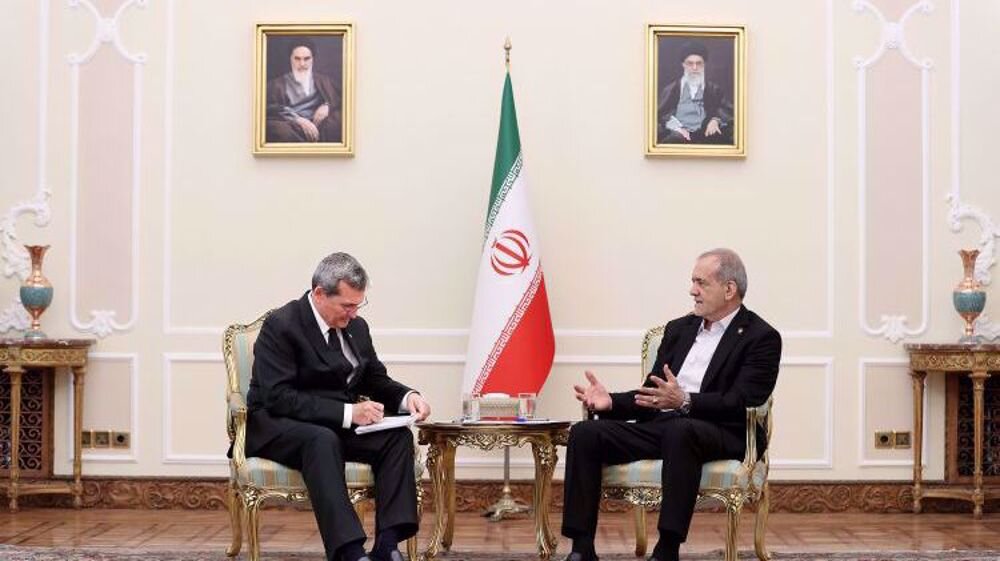Tehran – Iranian President Masuud Pezeshkian emphasizes Iran’s strong desire to broaden and deepen relations with neighboring Turkmenistan, highlighting energy, trade and infrastructure as a vast area of cooperation.
Speaking at a high-level meeting in Tehran with Turkmenistan’s Foreign Minister Rashid Meredov on Tuesday, President Pezeshkian emphasized that strong relations between Tehran and Ashgabat will not only benefit economically, but will also promote stability and safety in the region.
“Deepening bilateral cooperation, particularly through co-investment, will ensure a future of prosperity, friendship and mutual trust between the two countries,” Pezeschkian said. “We believe that through collaborative projects we can ensure enduring comfort and safety for people.”
Energy cooperation took the central stage for discussions. President Pezeshkian reaffirmed Iran’s interest in importing natural gas from Turkmenistan, pointing to the strategic ability of the Islamic Republic to act as a regional gas hub through exports and exchanges with its neighbors.
Emphasizing the importance of infrastructure, he sought the construction of a dedicated pipeline between Iran and Turkmenistan, supporting a variety of purposes from domestic consumption and exports to regional gas exchange mechanisms.
“In addition to the energy sector, we are also keen to expand the relationship between transportation, trade, investment and cultural exchange,” he added, noting that the two countries share long-standing historical and cultural ties that can be utilized for broader engagement.
Foreign Minister Meredov, who is visiting Tehran to attend the 18th meeting of the Joint Economic Cooperation Committee of Iran and Tourmanistan, reiterated his sentiment. He said Ashgabat views Iran as an important partner in its long-term economic strategy, working to expand its trade corridors, improve cross-border markets and strengthen its energy transport routes.
“Turkmenistan sees an important opportunity in working with Iran, particularly in the transport and export of natural gas through its territory,” Meredov pointed out, adding that the Central Asian country is keen to expand access to global markets through Iran’s infrastructure.
In recent years, Iran and Turkmenistan have signed several natural gas exchange agreements, allowing Iran to receive gas from Turkmenistan and deliver comparable volumes to third countries such as Azerbaijan and Iraq. These arrangements strengthened Iran’s ability to meet domestic demand in the northeastern region, home to major industrial and population centres.
Furthermore, Iran imports approximately 2 billion kilowatts of electricity per year from Turkmenistan to help meet peak electricity demand in the same region.

